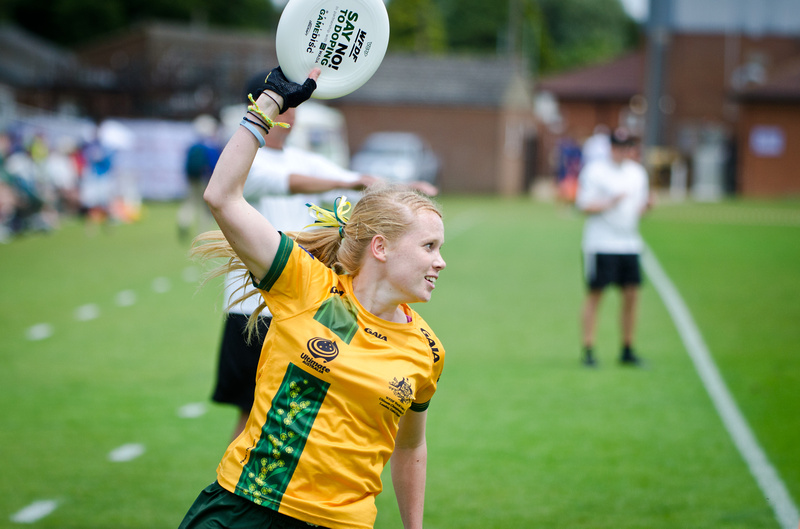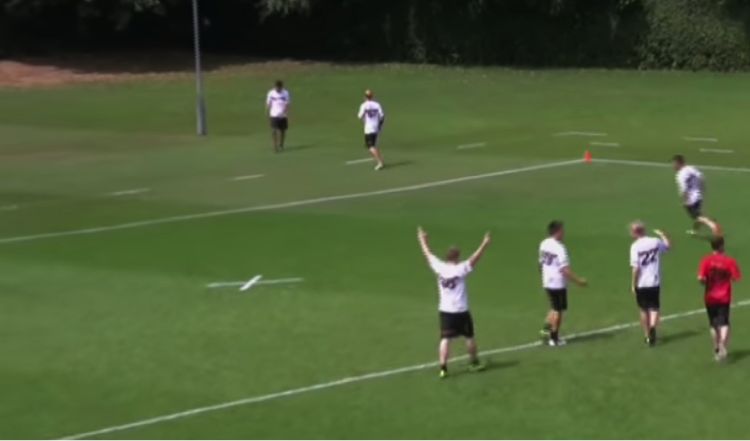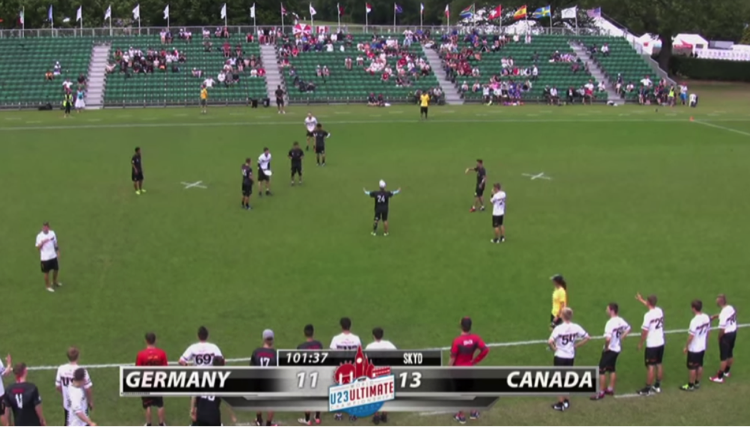 Andy Moss - UltiPhotos.com
Andy Moss - UltiPhotos.com
The dust has settled after a momentous World U23 Ultimate championships in London. WFDF and the English lads provided a masterclass in tournament organization. However, beyond the buttery biscuits and green glowing fields I found a sour taste lingering in my mouth. I uncovered a stinging snare clutched onto the fabrics of our sport.
Before I dive in any further we must first look at, what some consider, the cornerstone of ultimate, Spirit of the Game and the rules that bind it. A reading from the gospel according to WFDF:
1.2. It is trusted that no player will intentionally break the rules; thus there are no harsh penalties for breaches, but rather a method for resuming play in a manner which simulates what would most likely have occurred had there been no breach.
It’s not a phrase you’ll find in the rulebooks of soccer, rugby or even quidditch, but this magical verse gives our sport its true essence. Nevertheless, this rule seems to fall into a bottomless paradoxical pit when we examine what happens when a team frequently infringe on offsides or time limits. Two sins that had carelessly slipped under the radar until the arrival of the lemony dressed game advisors.
Offsides
A6.1. On the first instance of an offside violation for a team, or if the violation is contested, the pull must be repeated. The offence must signal readiness within fifteen (15) seconds of the violation call, and the pull must be released within thirty (30) seconds.
A6.2. For subsequent offside violations by a team.
A6.2.1. If the receiving team is offside: the receiving team must start with the disc at the midpoint of the end zone they are defending, after players set up and a check is performed.
A6.2.2. If the pulling team is offside: the receiving team starts with the disc at midfield, after players set up and a check is performed…
…no, not buried treasure but the dreaded reverse brick mark!

Time Limits
A5.4.1.4. If the offence fails to signal readiness in time the opposition should call a time limit violation. This violation must be called prior to the pull.
A5.4.1.5. On the first instance of a time limit violation, or if the violation is contested, no penalties apply. The offence must signal readiness within fifteen (15) seconds of the violation call, and the pull must be released within thirty (30) seconds of the violation call.
A5.4.1.6. For subsequent time limit violations the defence should assess a time out against the offence.
A5.4.1.7. If the offence has no time outs left they must start with the disc at the midpoint of the end zone they are defending, after players set up and a check is performed.
A5.4.2.2. If the defence fails to pull in time the opposition should call a time limit violation. This violation must be called before the receiving team touches the disc.
A5.4.2.3. On the first instance of a time limit violation, or if the violation is contested, no penalties apply. The offence must signal readiness within fifteen (15) seconds of the violation call, and the pull must be released within thirty (30) seconds of the violation call.
A5.4.2.4. For subsequent time violations the offence should assess a time out against the defence.
A5.4.2.5. If the defence has no time-outs left, the receiving team must start with the disc at midfield, after players set up and a check is performed…
…the middle mark or the belly button of the field as I like to call it.

As it’s written, breach of these rules lands a harsh penalty. Starting in the middle of your own endzone or having the opposition set up at the halfway mark seems as if it’s providing too much advantage considering the infraction and the potential gain of such infraction. Now don’t get me wrong, I loathe how often teams stray offside but we’re not exactly seeing players sprint halfway down the field before a pull goes off. As such, I don’t believe penalisation in this matter is the answer. A bit more encouragement and education to enforce these rules would go a long way.
If the defence gets a good pull off and starts sprinting down the field only to jog back because they strayed offside surely that’s the appropriate redo of the situation no matter how many times in occurs. Similarly, I’d be happy for teams to lose timeouts for time limit violations but a yardage penalty doesn’t seem requisite with the infraction.
Unfortunately, in the game of ultimate, we occasionally see intentional breaking of the rules. Bumping, fast counting, stepping into the mark and double teaming are all classics but none of these infringements will ever land you with a yardage penalty, no matter how many times you disobey them. If you agree with a yardage penalty for offsides, why not for subsequent bumps on the mark or other fouls?
Overall, I think we need to trust Spirit of the Game a bit more. Players aren’t gaming the pull system right now and the penalties assessed for these infractions go far beyond what’s necessary. In fact, these penalties affect the game far more than the infraction itself, where as the penalties associated with a dangerous play are practically non-existent. If we’re holding players to a certain SotG standard for dangerous plays (in that players aren’t intentionally creating a dangerous play and thus should not be penalized severely) then the same must apply to offsides.









Comments Policy: At Skyd, we value all legitimate contributions to the discussion of ultimate. However, please ensure your input is respectful. Hateful, slanderous, or disrespectful comments will be deleted. For grammatical, factual, and typographic errors, instead of leaving a comment, please e-mail our editors directly at editors [at] skydmagazine.com.